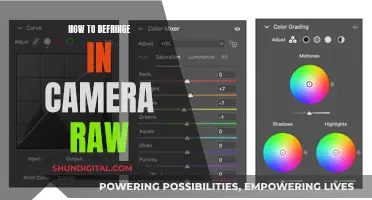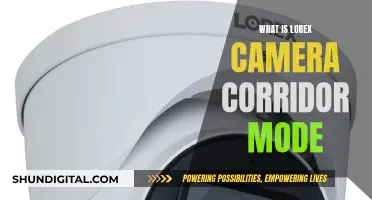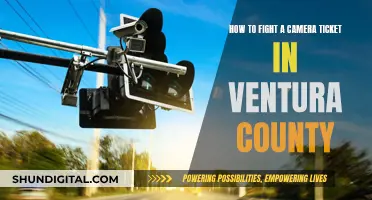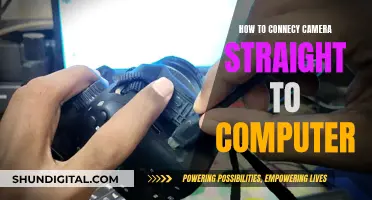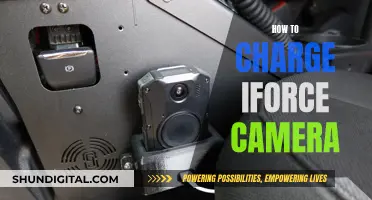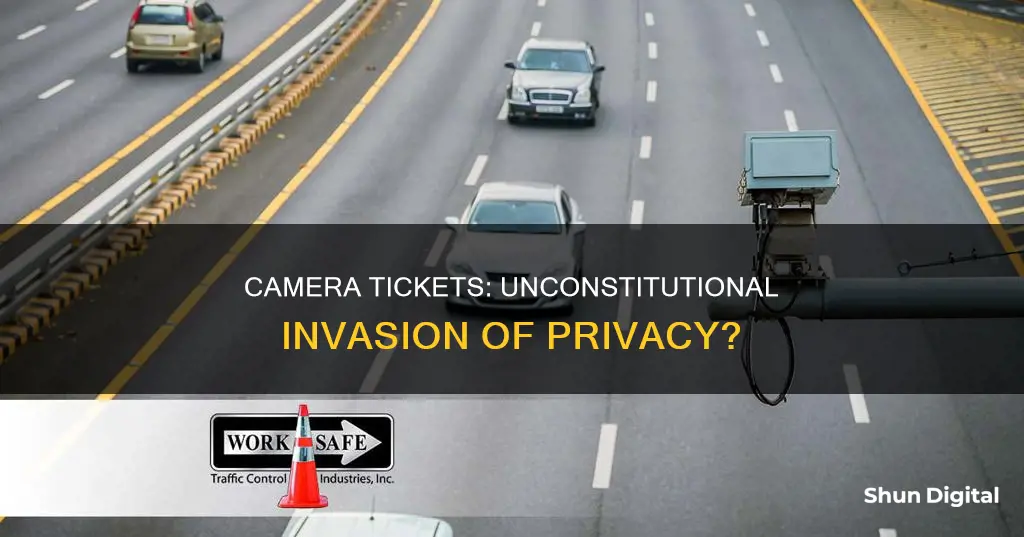
The use of camera tickets has sparked debate, with some arguing that they are unconstitutional and shouldn't have to be paid. While the laws vary across different states, the primary concern surrounds the violation of the Sixth Amendment's Confrontation Clause, which grants the accused the right to face their accuser. In the case of camera tickets, drivers are not confronted by a police officer but are instead issued a citation based on photo or video evidence. This evidence may also be unreliable due to equipment malfunctions or misidentification, leading to tickets being issued to the wrong person. Additionally, the use of camera tickets shifts the burden of proof onto the motorist, who may struggle to recall details or gather evidence to defend themselves weeks or months after the incident.
| Characteristics | Values |
|---|---|
| Are camera tickets constitutional? | Depends on the state. In Virginia, they are considered constitutional. |
| Who is responsible for the ticket? | In some states, the driver is responsible, while in others, the owner of the vehicle is responsible. In Virginia, the owner of the vehicle is responsible. |
| What are the penalties for a red light camera ticket? | In Virginia, the maximum penalty is a $50 fine. This is not considered a moving violation, so it will not go on your driving record or affect your insurance rates. |
| Can you receive both a red light camera ticket and a ticket from law enforcement? | Yes, if a police officer witnessed the violation and issued a citation. However, you will not be required to pay both tickets for the same offense. |
| What are the issues with camera tickets? | Misidentification, equipment malfunctions, burden on motorists to defend themselves, lack of safety, lack of audit and oversight, invasion of privacy, denial of due process, etc. |
What You'll Learn

Misidentification and equipment malfunctions
The use of speed and red-light cameras has sparked concerns about their accuracy and potential infringement on citizens' rights. One of the primary concerns is the issue of misidentification and equipment malfunctions, which can result in innocent people being burdened with fines and legal issues.
Misidentification
The Insurance Institute for Highway Safety reports that the registered owner of a vehicle is also the driver only 72% of the time. This means that over 25% of tickets issued based on camera evidence could be directed at the wrong person. This statistic highlights a significant flaw in the system and raises questions about the fairness and accuracy of such ticketing practices.
Equipment Malfunctions
The sensitive electronics used in photo enforcement are often left unattended and exposed to harsh weather conditions 24/7. There is no guarantee that all components of a photo system are functioning correctly at any given moment, and equipment vendors do not disclose their equipment reliability or error rates. This lack of transparency makes it difficult to trust the accuracy of camera tickets and raises concerns about potential malfunctions that could lead to erroneous citations.
The combination of misidentification and equipment malfunctions underscores the burden that camera ticketing can place on innocent individuals. Motorists receiving these tickets are at a disadvantage when it comes to mounting a defence, especially if significant time has passed since the alleged violation. The delays in receiving citations can make it challenging for drivers to recall the specific details of the incident or gather evidence to support their case.
The issues of misidentification and equipment malfunctions associated with camera ticketing have sparked debates about their constitutionality and fairness. While some argue that these cameras improve road safety and generate revenue for communities, others question their accuracy, effectiveness, and potential infringement on citizens' rights, including the Sixth Amendment's Confrontation Clause, which grants defendants the right to confront their accusers.
Understanding Time-Lapse Mode on Trail Cameras
You may want to see also

Burden on drivers to defend themselves
Camera tickets place a significant burden on drivers to defend themselves. When a driver receives a citation from a traffic camera, they are faced with a difficult choice: take time off work to fight the ticket or simply pay the fine. Either way, the driver is at a disadvantage.
Motorists who receive photo tickets often have to wait weeks or months before receiving a citation, making it challenging to recall the details of the alleged violation or collect evidence to mount a defence. By the time the driver receives the citation, the signs and road conditions may have changed, further hindering their ability to defend themselves effectively.
In some states, the owner of the vehicle is held responsible for a red-light-camera-related violation, even if they were not driving. This can lead to further complications and challenges in defending oneself, especially if the actual driver cannot be identified or located.
The use of traffic cameras also raises concerns about due process. The Sixth Amendment's Confrontation Clause grants the accused the right to confront their accusers. With camera tickets, drivers are not confronted by a police officer and are denied the opportunity to cross-examine or subpoena witnesses, including camera operators and evidence handlers. This lack of confrontation and ability to question evidence can make it exceedingly difficult for drivers to mount a successful defence.
Additionally, there is little to no oversight of the private camera vendors and their equipment. These vendors are not required to publish reliability and error rates, and there is no stated maintenance or audit program by government authorities to ensure the accuracy and reliability of the camera systems. As a result, drivers may find themselves at the mercy of potentially faulty or inaccurate technology, with little recourse for challenging the evidence presented against them.
Mastering Camera Modes for Artistic Background Blur
You may want to see also

Increase in accidents
The use of camera tickets has been a controversial topic, with some arguing that they violate privacy and are a form of "big brother" surveillance. However, others argue that they are an effective way to improve road safety and reduce accidents. So, do camera tickets lead to an increase in accidents?
There is mixed evidence on the impact of camera tickets, specifically speed cameras, on the number of accidents or motor vehicle collisions (MVCs). A study conducted in Phoenix, Arizona, found that the placement or removal of speed cameras on a 26-mile segment of interstate highway did not significantly affect the number of MVCs. During the study period, there was a slight increase in MVCs when cameras were placed (1.5%) and a more notable increase when cameras were removed (28%). However, these changes were not found to be statistically significant, and the authors concluded that speed cameras did not contribute to an increase or decrease in MVCs.
On the other hand, several studies have shown that red-light safety cameras can be effective in reducing both red-light violations and crashes. An IIHS study found a 21% reduction in fatal red-light running crash rates and a 14% reduction in all types of fatal crashes at signalized intersections in large cities with red-light safety cameras. Another study in Oxnard, California, reported a 29% reduction in injury crashes at intersections with traffic signals after the introduction of red-light safety cameras.
While camera tickets may not directly cause an increase in accidents, it's important to consider their impact on driving behavior. Some drivers may become more cautious and attentive when they know cameras are present, which could indirectly contribute to a decrease in accidents. Additionally, the presence of cameras can provide valuable data and insights for improving road safety measures.
In conclusion, the evidence on the impact of camera tickets on accident rates is mixed. While some studies suggest a slight increase in MVCs associated with speed cameras, the changes are not statistically significant. On the other hand, red-light safety cameras have been shown to reduce red-light violations and crashes. The overall effect of camera tickets on accident rates may depend on various factors, including the type of camera enforcement, driving behaviors, and road conditions. Further studies and data analysis are needed to fully understand the relationship between camera tickets and accidents.
Best Point-and-Shoot Cameras for RAW Photography
You may want to see also

Lack of oversight and maintenance
One of the main arguments against camera tickets is the lack of oversight and maintenance of the cameras themselves. There is no government-stated maintenance or audit program for the private camera vendors and their equipment. This means that there is no way to ensure the reliability and accuracy of the cameras, and no one knows if all the components of a photo system are working correctly at any given time.
Equipment vendors do not publish their equipment reliability and error rates, and there is no way for drivers to verify the inner workings of the cameras. This can lead to equipment malfunctions, which are a burden on innocent people who receive tickets. For example, sensitive photo enforcement electronics are often left unattended and vulnerable to harsh weather conditions.
In addition, the timing of yellow lights can be a point of contention. If the timing between yellow and red is minimal, drivers may argue that they did not have enough time to safely stop. Examining the calibration and maintenance records of the camera can help to identify any inconsistencies or malfunctions that could challenge the validity of a ticket.
Furthermore, the quality of the images captured by the cameras is crucial. Blurred or unclear photographs may not provide sufficient evidence of a violation. A skilled attorney can review the evidence and argue for dismissal based on the quality of the images.
Kodak AZ652 Camera Battery: What's Inside?
You may want to see also

Denial of due process and right to contest
The use of camera tickets can be seen as a denial of due process and the right to contest for several reasons. Firstly, there is an issue of uncertainty regarding the identity of the offender. In most cases, the ticket is issued to the owner of the vehicle, regardless of who was driving at the time of the alleged violation. This raises questions about the fairness of holding the vehicle owner responsible, especially if they were not driving.
The nature of the violation itself is also questionable. Since there is no person to serve as a witness, these violations are generally treated as civil fines rather than criminal offenses. This classification makes enforcement and collection difficult, as there are often no appeals procedures or opportunities for drivers to have their day in court. The lack of a clear legal framework for these violations, as illustrated by the experience of Adam MacLeod, further complicates the issue.
In his case, the city attorney could not clearly explain whether the violation was a criminal or civil action, and the proceedings seemed to arbitrarily switch between criminal and civil procedures. When MacLeod asked for evidence to support the charge, the city attorney replied that she did not need any, simply asserting that he was liable because his vehicle had been caught speeding. This lack of due process and the arbitrary application of rules undermine the fundamental principles of American constitutionalism.
The financial incentives for local governments and camera companies further complicate the issue. These entities often have a contract where the company installs the cameras in exchange for a share of the revenue generated from fines. This creates a conflict of interest and provides an incentive to game the system, undermining citizens' faith in government and the legal system.
Upgrading Camera Raw: A Quick Guide to the Latest Version
You may want to see also
Frequently asked questions
In Virginia, red light cameras are legal and the tickets they generate are considered constitutional. However, this may vary depending on the state.
This depends on the state. In some states, the driver is responsible, while in others, the owner of the vehicle is responsible. In Virginia, the owner of the vehicle is responsible, similar to how a parking ticket works.
In Virginia, a red light camera violation is treated differently than a ticket issued by a police officer. It is considered a civil penalty and is not a moving violation, so it will not go on your driving record or affect your insurance rates. The maximum penalty is $50.
Yes, it is possible to receive both types of tickets for the same incident. However, if this occurs, you can note it on the red light camera ticket and have that ticket dismissed, and then pay or dispute the officer-issued violation.
There are several concerns raised about the use of ticket cameras, including misidentification, equipment malfunctions, denial of due process, invasion of privacy, and the lack of a direct impact on improving safety.


